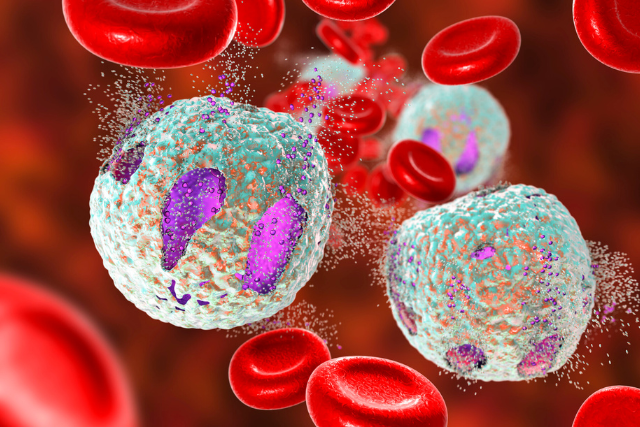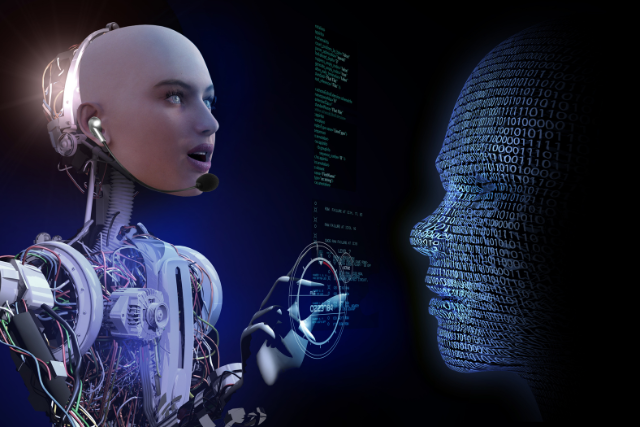Artificial intelligence (AI) is revolutionizing pathology, a field that involves examining tissues, cells, and body fluids to diagnose diseases. Traditionally, pathologists relied on manual processes to detect abnormalities in tissues, which could be time-consuming and subject to human error. However, AI-powered platforms like PathAI, Paige.AI, and Proscia are significantly improving the accuracy, speed, and consistency of diagnoses by assisting pathologists in analyzing biopsy slides, flagging abnormalities, and enhancing early detection of diseases such as cancer.
This transformation is already well underway, with AI making significant advancements in pathology and reshaping the profession. Pathologists today must learn to work alongside AI tools, and the job market is evolving to favor professionals who can leverage this technology to improve patient outcomes.
Advancements AI Has Made in Pathology
AI is rapidly transforming how pathology diagnoses are made, especially in areas like cancer detection, where early and accurate diagnosis is crucial. The integration of AI into pathology has led to several notable advancements:
1. Improved Accuracy in Diagnoses
One of the most impactful advancements AI has made in pathology is in improving diagnostic accuracy. AI-powered platforms like PathAI and Paige.AI use machine learning algorithms trained on vast datasets of biopsy images to detect abnormalities, such as cancerous cells, with remarkable precision. These tools can identify subtle patterns in tissue that may not be apparent to even experienced pathologists, leading to earlier detection and more accurate diagnoses.
For example, PathAI has been used in clinical trials to improve the diagnosis of breast and prostate cancer. By analyzing histopathology slides, the AI model can identify areas of concern, measure tumor size, and assess the severity of cancerous lesions. This helps reduce diagnostic variability and improve the consistency of diagnoses, ensuring that patients receive timely and accurate treatment recommendations.
2. Automation of Routine Tasks
AI has also made significant strides in automating routine tasks that were previously time-consuming for pathologists. For instance, AI systems can now pre-screen biopsy slides, count cells, and highlight areas with potential abnormalities. By automating these repetitive tasks, AI allows pathologists to focus on more complex cases that require their expertise, ultimately improving overall efficiency in pathology labs.
3. Enhancing Early Detection
AI has been particularly useful in early detection of diseases such as cancer. Early diagnosis can be life-saving, especially in diseases that are difficult to detect in their initial stages. AI models can quickly process large volumes of data and identify early-stage abnormalities that might be missed in traditional examinations. Paige.AI, for example, has developed AI models that detect prostate and breast cancer at earlier stages with greater accuracy, significantly improving patient outcomes.
A study published in Nature Medicine found that AI-assisted tools could detect breast cancer metastasis in lymph nodes with higher sensitivity than human pathologists. By enhancing early detection, AI not only improves survival rates but also reduces the need for more invasive treatments later on.
AI’s Impact on Job Prospects in Pathology
With AI transforming the field of pathology, the demand for professionals who can work alongside AI systems is growing. The introduction of AI tools in pathology is not eliminating jobs but rather reshaping the profession, creating new opportunities for pathologists who are adept at using AI to enhance diagnostic accuracy and efficiency.
1. Growing Demand for AI-Literate Pathologists
Healthcare institutions are increasingly adopting AI-powered diagnostic tools to improve patient care. As a result, there is a growing demand for pathologists who can leverage AI technologies to provide more accurate and efficient diagnoses. Pathologists with expertise in using AI platforms will be better positioned to take on leadership roles in labs and hospitals that are integrating AI into their diagnostic workflows.
According to a report by McKinsey & Company, the global AI healthcare market is projected to reach $150 billion by 2026, with diagnostic tools representing a significant portion of this growth. This means that pathologists who embrace AI will find themselves in high demand as healthcare providers look for professionals capable of improving diagnostic accuracy and patient outcomes.
2. Expanding Roles in AI-Driven Diagnostics
As AI continues to evolve, new roles are emerging within the pathology field. For instance, some pathologists may take on AI advisory roles, helping hospitals and diagnostic labs implement AI tools effectively. Others may work closely with AI developers and data scientists to refine and improve AI algorithms used in pathology.
Additionally, pathologists who develop expertise in AI ethics and regulatory compliance will find opportunities in shaping how AI is applied in healthcare, ensuring that AI-driven diagnostics are ethical, transparent, and aligned with legal standards such as GDPR and the AI Act in Europe.
How Pathologists Can Upskill to Thrive in the AI Era
To thrive in an AI-driven future, pathologists will need to adapt their skills and embrace continuous learning. AI is not replacing pathologists, but it is augmenting their capabilities. Professionals in the field can upskill to stay competitive and leverage AI technologies:
1. Develop Proficiency with AI Platforms
One of the most important steps for pathologists is to become proficient with AI-powered diagnostic tools. Familiarizing themselves with platforms like PathAI, Paige.AI, and Proscia will allow pathologists to work effectively alongside these systems. Many institutions are now offering training programs that focus on integrating AI into pathology workflows.
- Actionable Step: Pathologists should take advantage of AI training programs offered by organizations like the American Society for Clinical Pathology (ASCP) or Continuing Medical Education (CME) programs that focus on AI in diagnostics.
2. Learn the Fundamentals of AI and Machine Learning
Understanding the basic principles of machine learning and AI can help pathologists better interpret AI-generated data. Pathologists don’t need to become AI engineers, but they should develop a working knowledge of how AI models are trained, the types of data they analyze, and how to interpret the insights these tools provide.
- Actionable Step: Pathologists can enroll in online courses such as those offered by Coursera, edX, or Stanford University’s AI in Healthcare specialization, which are designed for healthcare professionals.
3. Stay Updated on AI Advancements
AI is an ever-evolving field, and staying updated on the latest advancements is crucial for pathologists. Keeping up with AI research, attending conferences, and following the latest developments in AI diagnostics will ensure that pathologists remain at the forefront of the field.
- Actionable Step: Attend industry conferences such as the Digital Pathology Association’s Pathology Visions Conference or RSNA Annual Meeting, which often feature sessions on AI in medical imaging and diagnostics.
4. Expand Critical Thinking and Problem-Solving Skills
Even with AI tools at their disposal, pathologists will need strong critical thinking and problem-solving skills to interpret complex cases that go beyond the scope of AI’s capabilities. AI may assist in flagging abnormalities, but pathologists must use their judgment to provide final diagnoses, especially when dealing with rare diseases or unusual cases.
- Actionable Step: Focus on honing diagnostic reasoning and problem-solving skills by regularly reviewing complex cases and collaborating with colleagues in multidisciplinary teams.
What Will Be Required of Pathologists in an AI-Enhanced Future
As AI continues to grow in pathology, pathologists will need to evolve and adapt to new roles and responsibilities. Here’s what will be required of pathologists to thrive:
1. Collaboration with AI Developers and Data Scientists
Pathologists will increasingly work with AI developers and data scientists to improve the accuracy of AI tools. This collaboration will ensure that AI algorithms are trained on high-quality data and that they are optimized for clinical use. Pathologists will provide critical insights into how AI models can be applied in real-world diagnostic settings.
2. Maintaining a Focus on Ethical AI Use
Pathologists will also need to ensure that AI-driven diagnostics are used ethically and responsibly. This includes being aware of potential biases in AI models and advocating for fairness and transparency in the diagnostic process. Pathologists must remain vigilant about the ethical implications of AI, particularly in ensuring that AI tools do not reinforce biases or produce discriminatory outcomes.
3. Continuous Education and Adaptability
The field of AI is evolving rapidly, and pathologists will need to embrace continuous education to stay relevant. This means regularly updating their knowledge of AI technologies, attending professional development courses, and being adaptable to new diagnostic tools as they emerge.
AI is transforming pathology by improving diagnostic accuracy, automating routine tasks, and enhancing early detection of diseases like cancer. As AI continues to evolve, the demand for AI-literate pathologists is growing, and new opportunities are emerging for professionals who can work alongside AI systems. By upskilling in AI platforms, learning the fundamentals of machine learning, and staying updated on advancements in the field, pathologists can thrive in an AI-driven future and contribute to more accurate, efficient, and patient-centered diagnostics.
Sources:
- Nature Medicine. “AI-Assisted Cancer Detection in Pathology: Improving Diagnostic Accuracy.” 2021.
- McKinsey & Company. “AI in Healthcare: Growth Projections and Diagnostic Applications.” 2022.
- American Society for Clinical Pathology (ASCP). “Training Pathologists for an AI-Driven Future.” 2023.
- Digital Pathology Association. “AI and the Future of Pathology: Opportunities and Challenges.” 2022.




